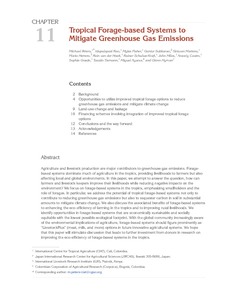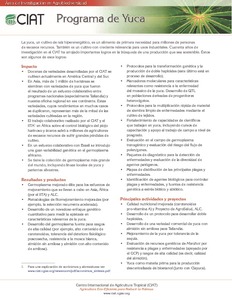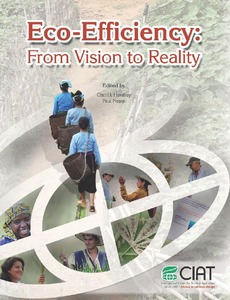Mission
To reduce hunger and poverty, and improve human nutrition in the tropics through research aimed at increasing the eco-efficiency of agriculture.
People
CIAT’s staff includes about 200 scientists. Supported by a wide array of donors, the Center collaborates with hundreds of partners to conduct high-quality research and translate the results into development impact. A Board of Trustees provides oversight of CIAT’s research and financial management.
Values
- Shared organizational ethic
- We respect each other, our partners, and the people who benefit from our work. We act with honesty, integrity, transparency, and environmental responsibility in all of our joint endeavors.
- Learning through partnerships
- We work efficiently and pragmatically together and with partners. Considering our diversity to be a key asset, we adapt readily to change and strive to improve our performance through continuous learning.
- Innovation for impact
- We develop innovative solutions to important challenges in tropical agriculture, resulting in major benefits for the people who support, participate in, and profit from our work.
Members:
Resources
Displaying 311 - 315 of 958Tropical forage-based systems to mitigate greenhouse gas emissions
Síntesis de los programas de investigación del CIAT: area de investigación en agrobiodiversidad
Synthesis reports on CIAT's investigations in the area of agrobiodiversity.
Eco-Efficiency: from vision to reality
The notion of eco-efficiency – first put forward by the private-sector at the time of the 1992 Earth Summit – has since been taken up by experts in agriculture as a guiding principle for research. Eco-efficient agriculture, according to a CIAT report, is competitive and profitable as well as sustainable and resilient, thus generating multiple benefits for the poor, especially when it offers new options for women.





